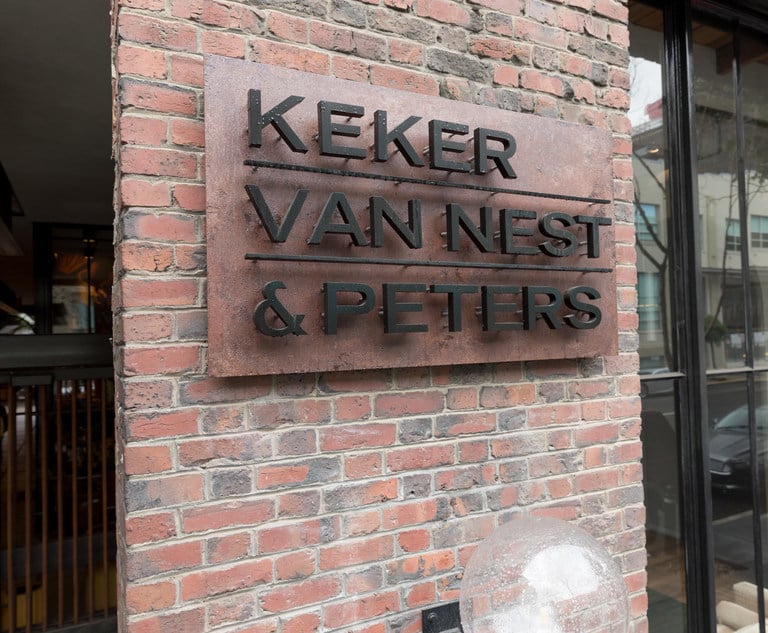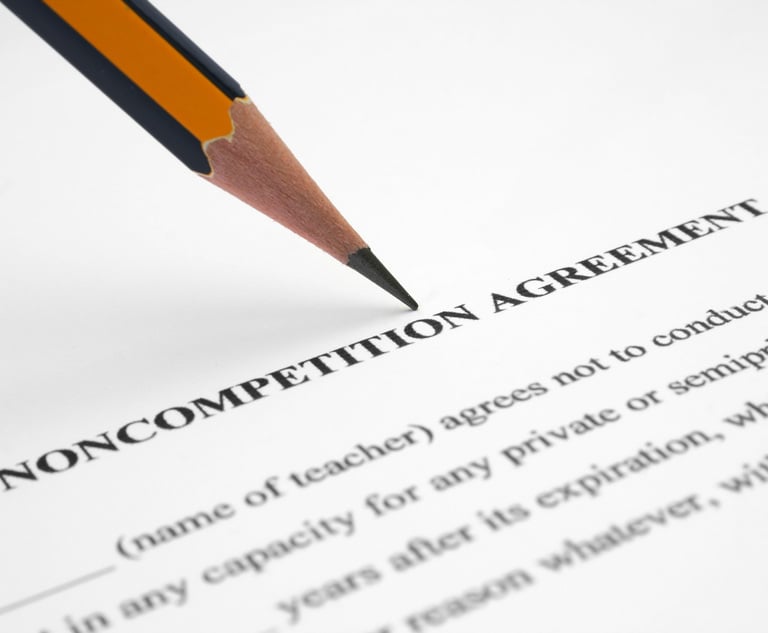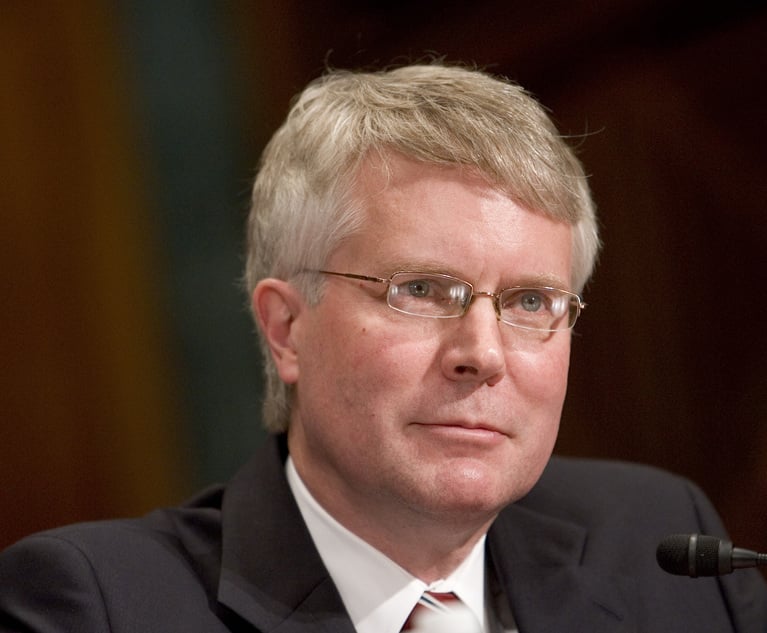CVS, Best Buy End Job-Applicant Personality Tests Amid EEOC Probe
The use of personality tests ballooned over the last decade, as companies tried to find efficient ways to hire workers by using algorithms to predict how a worker will perform.
June 07, 2018 at 03:24 PM
4 minute read
 Photo: Shutterstock.com
Photo: Shutterstock.com
Federal regulators put a greater focus in recent years on how companies were using personality tests to screen job applicants, as hiring processes increasingly incorporated online tools. Now, two major companies have scuttled such practices under a U.S. Equal Employment Opportunity Commission probe into whether the tests were discriminatory.
Best Buy and CVS Caremark Corp. agreed to stop their practice of using personality tests as part of the job application process in separate conciliation agreements with the EEOC, the agency said Wednesday. The details of the agreements are confidential. The agency said the concerns about the policies were raised by a former EEOC commissioner. Neither company admitted liability.
The use of personality tests ballooned over the last decade, as companies tried to find efficient ways to hire workers by using algorithms to predict how a worker will perform. A 2014 study by human resources group CEB found that 62 percent of the employers surveyed said they required applicants to take a personality test. Another survey that year found dozens of major U.S. companies in the energy and financial sectors were employing personality tests.
The tests came under increasing scrutiny for their potential to weed out people with mental illness or certain racial groups. CVS had previously agreed, for example, to remove certain mental health-related questions from its questionnaire after a probe from the Rhode Island Commission for Human Rights.
In recent years, the EEOC launched investigations into personality tests on the grounds of discrimination and has guidelines for these job applicant assessments. Some companies on their own have decided to eliminate or reduce parts of the assessment tests, including Whole Foods Market Inc.
Target Corp. reached an agreement with the EEOC in 2015 in which the retail giant agreed to pay $2.8 million to resolve claims that its employment assessments discriminated against candidates based on race and sex. The company ended the practice in question before reaching litigation with the commission.
In court, the EEOC has won cases over employment assessment tests, including against Ford Motor Co., Dial Corp. and DaimlerChrysler Corp. These cases centered around tests that the commission found discriminated against prospective hires on the basis of race, sex and disability, respectively.
In the CVS investigation, the EEOC said the Rhode Island-based company's use of personality tests between 2002 and 2010 adversely affected applicants based on race and national origin. CVS stopped using the assessments after receiving the discrimination charge. The company declined to comment on the resolution with the EEOC.
Following the agency's probe, CVS agreed to implement “best practices,” which include modifying its hiring process, employing staff to recruit and monitor the hiring of minorities and developing a comprehensive training curriculum for managers. The company said it will also regularly conduct evaluations of its hiring practices and provide reports to the EEOC for several years.
“CVS has shown model cooperativeness in this conciliation process,” said Jamie Williamson, director of the EEOC's Philadelphia district, of which Cleveland is a part. “It's a great sign when such a major employer of national scope works with the EEOC to straighten out a situation that was discriminatory, even if it was never intended to be.”
The case was similar for Best Buy. The agency said that Best Buy's tests between 2003 and 2010 harmed applicants based on race and national origin. The Minnesota-based electronics company agreed to stop the assessment practices.
The company agreed to comprehensive in-house training modules for hiring managers and will form regional diversity and inclusion committees. It will also evaluate its practices and submit regular reports to the EEOC. A Best Buy representative wasn't reached for comment.
“So-called 'personality tests' are unacceptable if they have the effect of screening out people because of their race or national origin,” Cheryl Mabry, director of the EEOC's Cleveland field office, said. “We appreciate Best Buy cooperating with the EEOC to correct this situation.”
This content has been archived. It is available through our partners, LexisNexis® and Bloomberg Law.
To view this content, please continue to their sites.
Not a Lexis Subscriber?
Subscribe Now
Not a Bloomberg Law Subscriber?
Subscribe Now
NOT FOR REPRINT
© 2025 ALM Global, LLC, All Rights Reserved. Request academic re-use from www.copyright.com. All other uses, submit a request to [email protected]. For more information visit Asset & Logo Licensing.
You Might Like
View All
Pac-12, Represented by Keker, Sues Mountain West Conference Over 'Unlawful' Poaching Penalty

California Federal Court Home to Highest Trade Secret Caseload in the Nation, Says New Report

Employers Should Narrowly Tailor Noncompetes to Pass Scrutiny, Say Trade-Secrets Attorneys
4 minute read
Courts Need Experts' Help in Analyzing Online Arbitration Clause Designs, Judge Says
Trending Stories
- 1'It's Not Going to Be Pretty': PayPal, Capital One Face Novel Class Actions Over 'Poaching' Commissions Owed Influencers
- 211th Circuit Rejects Trump's Emergency Request as DOJ Prepares to Release Special Counsel's Final Report
- 3Supreme Court Takes Up Challenge to ACA Task Force
- 4'Tragedy of Unspeakable Proportions:' Could Edison, DWP, Face Lawsuits Over LA Wildfires?
- 5Meta Pulls Plug on DEI Programs
Who Got The Work
Michael G. Bongiorno, Andrew Scott Dulberg and Elizabeth E. Driscoll from Wilmer Cutler Pickering Hale and Dorr have stepped in to represent Symbotic Inc., an A.I.-enabled technology platform that focuses on increasing supply chain efficiency, and other defendants in a pending shareholder derivative lawsuit. The case, filed Oct. 2 in Massachusetts District Court by the Brown Law Firm on behalf of Stephen Austen, accuses certain officers and directors of misleading investors in regard to Symbotic's potential for margin growth by failing to disclose that the company was not equipped to timely deploy its systems or manage expenses through project delays. The case, assigned to U.S. District Judge Nathaniel M. Gorton, is 1:24-cv-12522, Austen v. Cohen et al.
Who Got The Work
Edmund Polubinski and Marie Killmond of Davis Polk & Wardwell have entered appearances for data platform software development company MongoDB and other defendants in a pending shareholder derivative lawsuit. The action, filed Oct. 7 in New York Southern District Court by the Brown Law Firm, accuses the company's directors and/or officers of falsely expressing confidence in the company’s restructuring of its sales incentive plan and downplaying the severity of decreases in its upfront commitments. The case is 1:24-cv-07594, Roy v. Ittycheria et al.
Who Got The Work
Amy O. Bruchs and Kurt F. Ellison of Michael Best & Friedrich have entered appearances for Epic Systems Corp. in a pending employment discrimination lawsuit. The suit was filed Sept. 7 in Wisconsin Western District Court by Levine Eisberner LLC and Siri & Glimstad on behalf of a project manager who claims that he was wrongfully terminated after applying for a religious exemption to the defendant's COVID-19 vaccine mandate. The case, assigned to U.S. Magistrate Judge Anita Marie Boor, is 3:24-cv-00630, Secker, Nathan v. Epic Systems Corporation.
Who Got The Work
David X. Sullivan, Thomas J. Finn and Gregory A. Hall from McCarter & English have entered appearances for Sunrun Installation Services in a pending civil rights lawsuit. The complaint was filed Sept. 4 in Connecticut District Court by attorney Robert M. Berke on behalf of former employee George Edward Steins, who was arrested and charged with employing an unregistered home improvement salesperson. The complaint alleges that had Sunrun informed the Connecticut Department of Consumer Protection that the plaintiff's employment had ended in 2017 and that he no longer held Sunrun's home improvement contractor license, he would not have been hit with charges, which were dismissed in May 2024. The case, assigned to U.S. District Judge Jeffrey A. Meyer, is 3:24-cv-01423, Steins v. Sunrun, Inc. et al.
Who Got The Work
Greenberg Traurig shareholder Joshua L. Raskin has entered an appearance for boohoo.com UK Ltd. in a pending patent infringement lawsuit. The suit, filed Sept. 3 in Texas Eastern District Court by Rozier Hardt McDonough on behalf of Alto Dynamics, asserts five patents related to an online shopping platform. The case, assigned to U.S. District Judge Rodney Gilstrap, is 2:24-cv-00719, Alto Dynamics, LLC v. boohoo.com UK Limited.
Featured Firms
Law Offices of Gary Martin Hays & Associates, P.C.
(470) 294-1674
Law Offices of Mark E. Salomone
(857) 444-6468
Smith & Hassler
(713) 739-1250










